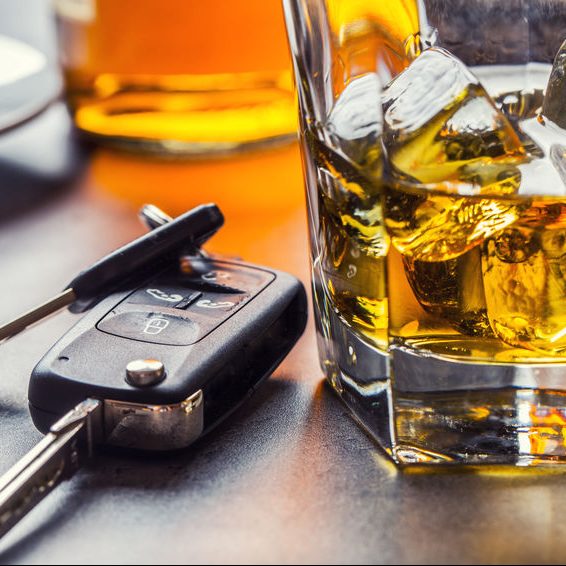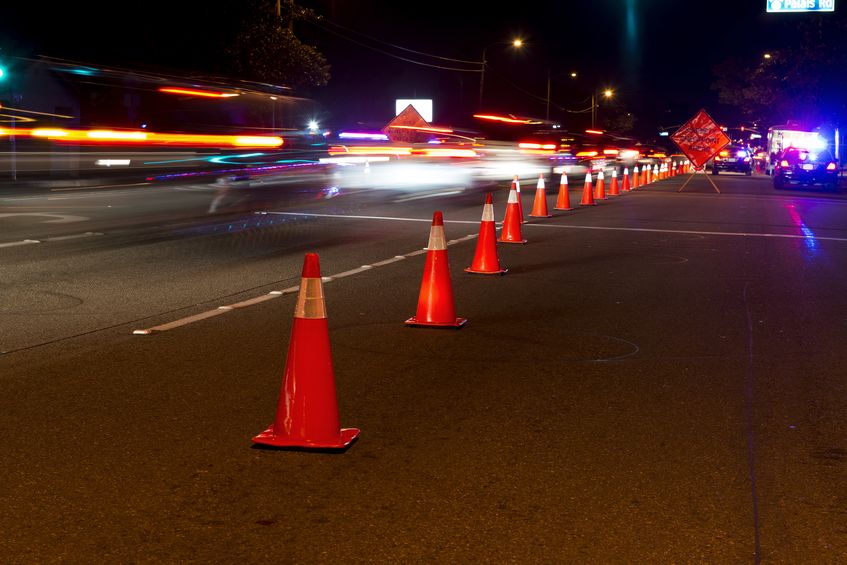
What is DUI?
In every state, driving while consuming alcohol or drugs, prescription drugs included, is illegal and is referred to as DUI (driving under the influence) or DWI (driving while intoxicated). This topic has become a focus across the country, and each state has created a DUI prevention plan in an effort to minimize the number of DUI/DWI scenarios.
A DUI is a crime and rarely does a DUI without arrest not occur. If you are convicted of a DUI, you will be sentenced in some fashion. The punishment for this varies from state to state and obtaining a DUI attorney when faced with this charge is always recommended, especially if the charge is booked as a felony.
It is common within the punishment for the offender to participate in a DUI prevention plan that may include taking a driving course, attending a seminar if the DUI with an accident was involved, and in extreme cases where a death was involved as the result of DUI/DWI, speaking at a seminar.
There are some terms used within a DUI/DWI charge that anyone arrested with either one should become familiar with.
- DUI Checkpoint
- Implied Consent
- BAC – Blood Alcohol Concentration
- IDD – (Ignition Interlock Device)
An attorney experienced in DUI/DWI cases will seek for the charge to be reduced, or even dismissed, regardless of the BAC, even if there was an implied consent involved. If they are not able to do either, they will negotiate on behalf of their client for a lesser sentence and enrollment into a treatment program and participation with a DUI prevention plan.
Which is worse DUI or DWI?
It can depend on what state you’re pulled over for suspension of either DUI or DWI. Some states consider these as separate charges with ta DWI being the more serious charge. The point where a DWI is a legitimate offense is determined by the BAC (blood alcohol concentration) with each state having its own level set in place. If the BAC is under that specific level, the lesser charge of a DUI is issued.
What happens if you get DUI?
While driving while intoxicated with alcohol or drugs isn’t smart, when you go back and think about this situation, a DUI isn’t the worst thing could have happened. Apparently you were driving erratically enough a police officer saw the need to stop you before you caused an accident, or worse, a death, or you wouldn’t be in this position. It is the hope of all involved with what you’re about to endure, that you have learned enough not to repeat this mistake. The purpose of any DUI prevention plan presentations and programs is hit the consciousness of those that may be prone to drink and drive, such as school children.
Here is what you can expect to happen when you have been stopped for suspicion of DUI/DWI:
- You will be required to take a breathalyzer test or a sobriety test
- You will receive a citation that will have a court date stated
- You will be handcuffed and escorted to the police station
- You will have your mugshot taken and you will be fingerprinted
At this point, depending on state law, you will be released under your own recognizance or bail will be required for you to be released. In either situation, you will be required to sign a promise to appear before the court on the appointed date and not engage in any illegal activity. In some cases, you may be left to “sleep it off” before being released.
Can a DUI be dismissed?
In every state, there must be probable cause proved by the officer for stopping you, detaining you, or arresting you for a DUI/DWI. A DUI prevention plan will often show films of a patrol office following a suspected drunk driver and making that determination if conducting a traffic stop is warranted.
During the appointed court date, if the defendant’s attorney can show that there wasn’t a probable cause, the judge has the authority to dismiss the case. Some instances that the defendant’s attorney may use to have the case dismissed are:
- Lack of Probable Cause
- No Evidence Who Was Driving
- Vehicle Was Not Moving
- Lack of Evidence Defendant Was Under the Influence While Driving
- Blood Test Results Did Not Indicate Impairment
- Blood Test Was Improperly Administered
- Consent Was Not Given for Blood Draw
- Warrant Not Presented for Blood Draw
- Defendant Did Not Know Any Drug Was In Their System
What is the punishment for a first time DUI?
In most states, the first DUI charge is a misdemeanor offense. The punishment will vary from state to state, where any of the following could be implemented:
- Payment of a fine
- Required community service
- Driver’s license suspended
- Probation
- Required attendance or participation in a DUI prevention plan
There are other factors considered that determine which of these are implanted by the judge and can be only one of them, a combination of any, or all of them. The level of what the defendant was charged with can result in an enhanced sentence and a severe penalty, such as jail time.
Some factors that can make the severity of the punishment harsher would be an open container inside the vehicle, a child was in the vehicle or previous conviction. These are factors that can take the case from a misdemeanor and a fine to mandatory jail time or license suspended or even revoked.

Can a DUI ruin your life?
Any person that is convicted of a DUI/DWI will have a criminal record the rest of their life. With that comes the possibility of job loss, increased insurance premiums, and a loss of respect by many, including family members.
Many families are destroyed by this and will find the need for psychiatric or psychological help to deal with the stigma associated with this type of charge. A DUI prevention plan will often take attendees through this after effect as well as the legalities.
Some examples of what a person convicted of a DUI/DWI may face are:
- A permanent criminal record that includes mug shot and fingerprints
- Driver’s license suspended for a period
- Fines in various amounts
- Require IID installed for a period
- Required to take a DUI/DWI class, undergo counseling, participation in a DUI prevention plan
- Higher insurance rates, possible loss of insurance, specialized insurance
- Denial of out-of-state and/or international travel
Nobody sets out with the intention of being charged with a DUI or DWI, but surprisingly, it happens every day to people that never thought they would never happen to them. The best advice anyone can receive is don’t drink and drive or take drugs and drive. That is the safest way to live life today, but if you do find yourself, or someone you know, in this position, we hope that this article provided you helpful information. Need bail for your DUI? Call Indiana Bail Bonds in Indianapolis, IN at 317-423-9300!
